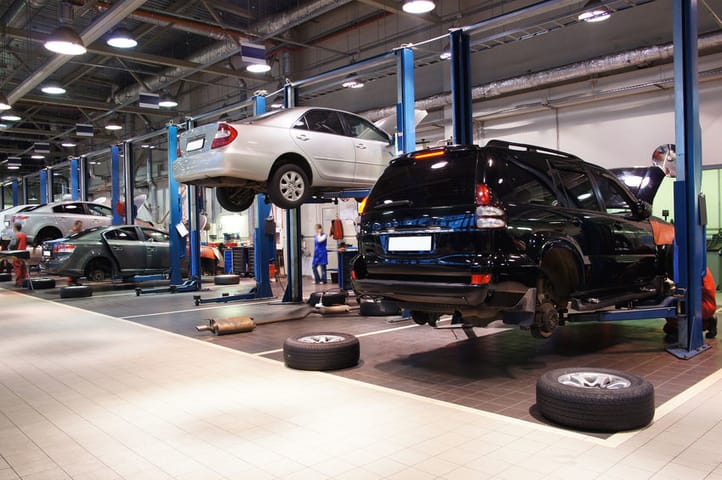All Categories
Featured
A well-maintained engine is the vital to your automobile's long life and optimal performance. Regular engine tune-ups not only improve fuel performance yet also reduce the probability of unforeseen break downs. Whether you're a cars and truck fanatic or somebody who just wants to stay clear of costly repair services, these engine tune-up pointers will maintain your lorry running like a desire.

- Change the Glow Plugs. The ignition system spark the air-fuel blend in your engine, and their effectiveness straight affects engine performance. Over time, stimulate plugs can wear, leading to misfires, lowered fuel economic climate, and slow-moving acceleration.
Throughout a tune-up, inspect and replace ignition system if they reveal signs of wear, such as soot accumulation, rust, or cracks. Depending upon your automobile, spark plugs may need to be changed every 30,000 to 100,000 miles.
- Inspect the Ignition System. Your auto's ignition system, which includes the ignition coils, supplier, and cables (if suitable), is liable for delivering the spark that powers your engine. Damaged ignition components can trigger starting problems and harsh engine operation.
Examine for damaged or worn components and replace them during your tune-up. Ensuring a healthy and balanced ignition system will certainly improve engine dependability and efficiency.
- Clean or Change the Air Filter. A clean air filter permits your engine to "take a breath" correctly by guaranteeing a steady circulation of clean air. Over time, dirt and debris can block the filter, decreasing airflow and influencing fuel performance.
Evaluate the air filter throughout a tune-up and change it if it's dirty. For motorists in messy or polluted areas, air filters may need to be transformed a lot more often.
- Check and Tidy the Fuel System. The fuel system, consisting of the gas injectors, gas pump, and gas lines, can collect down payments in time, decreasing gas distribution and engine performance. Utilize a gas injector cleaner or have your system expertly cleansed throughout a tune-up to bring back proper functionality.
Consistently preserving your gas system makes sure much better burning and optimizes your engine's performance.

- Modification the Engine Oil and Oil Filter. Engine oil is important for lubrication, air conditioning, and decreasing rubbing between relocating components. Gradually, oil degrades and accumulates particles, shedding its efficiency.
Throughout a tune-up, change the engine oil and oil filter. Following the supplier's recommendations for oil type and adjustment intervals is vital to keeping your engine in ideal condition.
- Check the Belts and Tubes. The belts and pipes in your engine area play important functions in powering parts like the alternator, water pump, and cooling system. Deterioration with time can lead to splits, fraying, or leaks.
Examine the problem of belts and hose pipes throughout your tune-up and change any type of that show signs of damage. Proactively dealing with these concerns can protect against expensive fixings and unanticipated malfunctions.
- Examine the Battery and Electrical System. A weak or failing battery can leave you stranded. During your tune-up, examination the battery's voltage, check the terminals for corrosion, and ensure the connections are tight.
Additionally, have the alternator and starter examined to guarantee they're working correctly. Attending to electric system issues early can conserve you from inconvenient shocks.
- Examine the Air Conditioning System. The cooling system prevents your engine from overheating, which can cause serious damage. During a tune-up, inspect the radiator, hoses, and water pump for leaks or use.
Flush and change the coolant if it's unclean or has actually surpassed its recommended life span. Correct cooling system upkeep assists your engine run within its optimum temperature level array.
- Address Dashboard Warning Lights. Modern cars are equipped with innovative diagnostic systems that brighten cautioning lights when problems arise. If your control panel presents any cautioning lights, such as the check engine light, address them during the tune-up.
An expert technician can make use of analysis tools to recognize and deal with the trouble, avoiding tiny problems from rising.
- Maintain Your Engine Clean. A tidy engine runs cooler and is easier to examine for prospective problems. Remove dirt, grease, and crud from your engine bay during a tune-up. Use a degreaser and a gentle brush for cleaning, and prevent spraying water directly on electric elements.
Verdict: Tune-Ups Are the Secret to Engine Longevity. Routine engine tune-ups are an investment in your car's wellness, performance, and efficiency. Whether you're dealing with the tune-up yourself or taking your vehicle to a trusted auto mechanic, complying with these pointers will certainly keep your engine running at its best and aid you avoid unexpected repair work.
Latest Posts
The Importance of Professional Gutter Installation and Upkeep
Enhancing Your Residential Property with Washington Fence
A Raised Culinary Experience